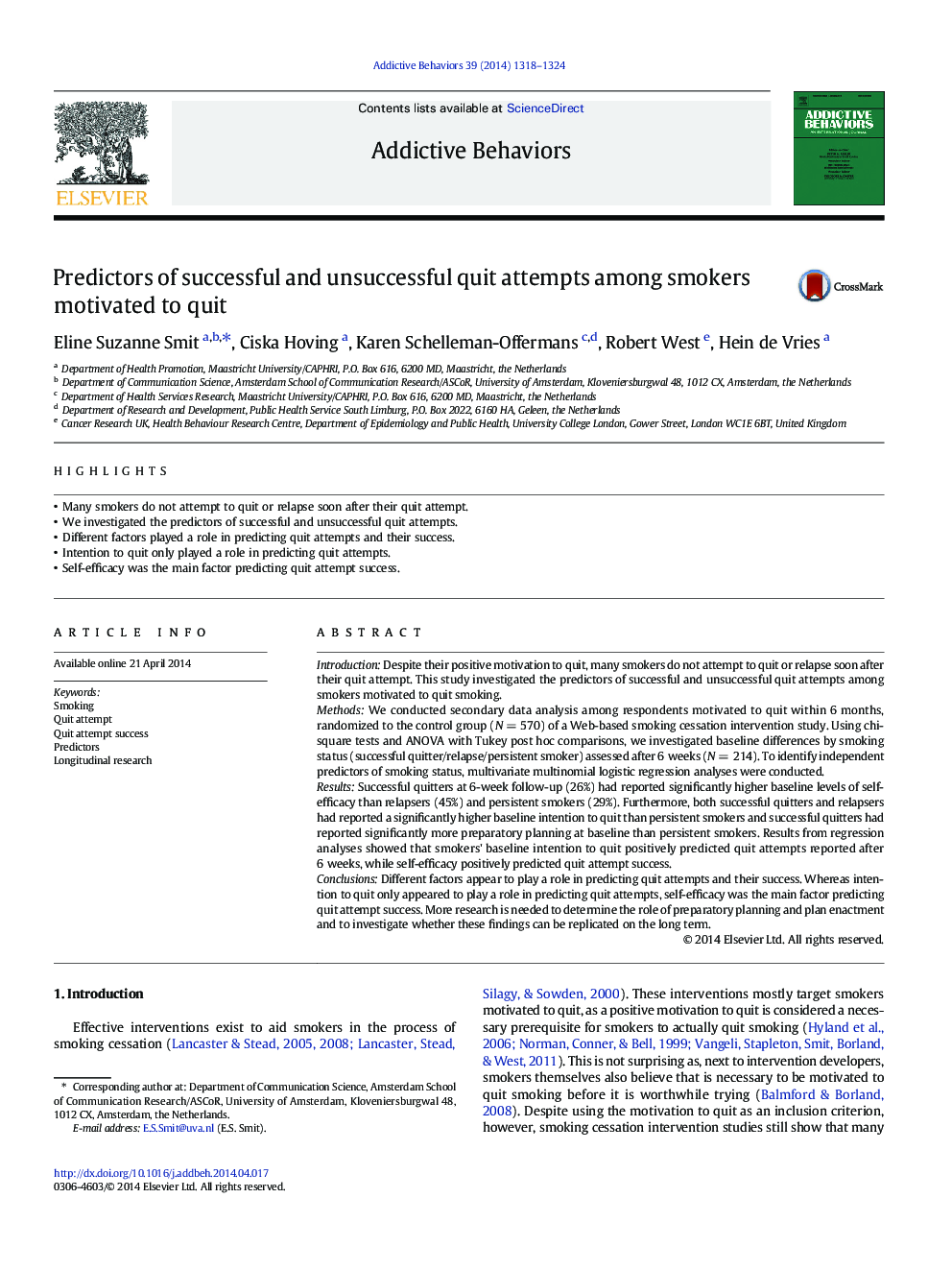| کد مقاله | کد نشریه | سال انتشار | مقاله انگلیسی | نسخه تمام متن |
|---|---|---|---|---|
| 898752 | 915340 | 2014 | 7 صفحه PDF | دانلود رایگان |
• Many smokers do not attempt to quit or relapse soon after their quit attempt.
• We investigated the predictors of successful and unsuccessful quit attempts.
• Different factors played a role in predicting quit attempts and their success.
• Intention to quit only played a role in predicting quit attempts.
• Self-efficacy was the main factor predicting quit attempt success.
IntroductionDespite their positive motivation to quit, many smokers do not attempt to quit or relapse soon after their quit attempt. This study investigated the predictors of successful and unsuccessful quit attempts among smokers motivated to quit smoking.MethodsWe conducted secondary data analysis among respondents motivated to quit within 6 months, randomized to the control group (N = 570) of a Web-based smoking cessation intervention study. Using chi-square tests and ANOVA with Tukey post hoc comparisons, we investigated baseline differences by smoking status (successful quitter/relapse/persistent smoker) assessed after 6 weeks (N = 214). To identify independent predictors of smoking status, multivariate multinomial logistic regression analyses were conducted.ResultsSuccessful quitters at 6-week follow-up (26%) had reported significantly higher baseline levels of self-efficacy than relapsers (45%) and persistent smokers (29%). Furthermore, both successful quitters and relapsers had reported a significantly higher baseline intention to quit than persistent smokers and successful quitters had reported significantly more preparatory planning at baseline than persistent smokers. Results from regression analyses showed that smokers' baseline intention to quit positively predicted quit attempts reported after 6 weeks, while self-efficacy positively predicted quit attempt success.ConclusionsDifferent factors appear to play a role in predicting quit attempts and their success. Whereas intention to quit only appeared to play a role in predicting quit attempts, self-efficacy was the main factor predicting quit attempt success. More research is needed to determine the role of preparatory planning and plan enactment and to investigate whether these findings can be replicated on the long term.
Journal: Addictive Behaviors - Volume 39, Issue 9, September 2014, Pages 1318–1324
